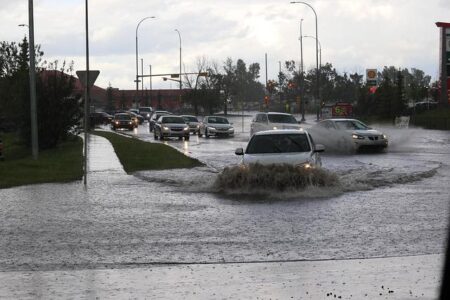Shifting Consumer Behaviors Amid Coronavirus Concerns in Washington
As anxiety surrounding the coronavirus escalates in Washington state, consumer habits are undergoing notable transformations. Shoppers are increasingly unpredictable, frequently altering their purchasing methods by canceling in-store visits and pivoting to online shopping with little warning. Retail experts attribute these fluctuations to heightened health fears and rapidly changing public health directives. This volatility has complicated inventory planning, forcing many retailers to rapidly recalibrate supply chains to align with erratic demand patterns.
Recent consumer trends include:
- Initial surges in demand for hygiene products like hand sanitizers and face coverings, followed by stabilization as supplies catch up.
- A marked increase in last-minute online orders coinciding with a decline in physical store visits, impacting traditional retail sales.
- Growing reluctance to spend on non-essential items, resulting in unpredictable revenue streams for many businesses.
| Sector | Revenue Shift (Past Month) | Consumer Behavior Observed |
|---|---|---|
| Grocery Stores | +18% | Early bulk purchases, inconsistent restocking |
| Dining Establishments | -28% | Transition to takeout, frequent booking cancellations |
| Apparel Retailers | -42% | Significant drop in store visits, erratic online sales |
Pandemic Fears Trigger Decline in Local Business Traffic
Across Washington, small and independent businesses are experiencing a steep downturn as shoppers become more cautious and erratic in their spending habits. Many consumers are deliberately avoiding crowded venues and deferring purchases deemed non-essential, leading to a pronounced reduction in foot traffic. This trend is particularly detrimental to businesses that depend heavily on walk-in customers.
A recent survey of urban commercial districts revealed that nearly 70% of businesses have seen sales fall by over 30% within the last fortnight. Restaurants and service providers report a surge in cancellations and fewer reservations, compounding financial pressures. The table below highlights the impact across various sectors:
| Industry | Average Sales Decline | Reduction in Customer Visits |
|---|---|---|
| Retail Stores | 37% | 42% |
| Food & Beverage | 32% | 47% |
| Personal Care Services | 27% | 33% |
| Fitness Facilities | 43% | 52% |
- Local business associations advocate for expanding e-commerce capabilities.
- Municipal authorities are considering financial aid packages to alleviate economic distress.
- Consumers are encouraged to support neighborhood businesses through digital channels.
Retailers Face Economic Challenges Amid Fluctuating Demand
Washington’s retail sector is confronting significant hurdles as consumer demand swings unpredictably in response to the coronavirus outbreak. The market for essential goods has seen dramatic shifts, with consumers alternating between stockpiling and avoiding stores altogether. This inconsistency complicates inventory control and strains cash flow, especially for small and medium-sized enterprises that lack the flexibility to swiftly adjust supply chains or absorb sudden revenue drops.
Factors intensifying economic pressures on retailers include:
- Steep declines in foot traffic, particularly in non-essential retail categories
- Supply chain interruptions leading to product shortages
- Rising operational expenses due to enhanced sanitation and safety protocols
- Heightened consumer apprehension influencing purchasing decisions
| Retail Category | Sales Variation (%) | Observed Consumer Behavior |
|---|---|---|
| Groceries | +25% | Panic buying and hoarding |
| Fashion | -40% | Cutbacks on discretionary purchases |
| Consumer Electronics | -18% | Postponed upgrades and cautious buying |
Community Collaboration and Strategic Initiatives to Support Businesses
Business leaders and economic experts stress the importance of community unity paired with strategic planning to soften the financial blow caused by erratic consumer behavior. As shoppers’ habits fluctuate due to health concerns, adopting adaptable business models and maintaining transparent communication are vital to sustaining customer trust. Recommended approaches include:
- Strengthening digital platforms to facilitate safe, remote shopping experiences.
- Implementing targeted discounts and promotions to stabilize spending patterns.
- Partnering with local groups to amplify marketing reach and community engagement.
- Visible health and safety measures to reassure customers and encourage in-person visits.
Alongside community efforts, businesses must embrace operational changes to weather this volatile period. The table below outlines key adaptation strategies and their anticipated benefits:
| Adaptation Approach | Benefit | Implementation Timeline |
|---|---|---|
| Contactless Payment Options | Minimized physical interaction | Short-term (1-2 weeks) |
| Inventory Management Optimization | Improved cash flow and stock control | Mid-term (1-2 months) |
| Flexible Workforce Scheduling | Cost savings during demand lulls | Immediate |
| Community Engagement Initiatives | Enhanced local support and loyalty | Ongoing |
Conclusion: Navigating Uncertainty in Washington’s Retail Landscape
The ongoing coronavirus crisis continues to unsettle consumer confidence and disrupt traditional shopping behaviors throughout Washington. The resulting economic strain on local businesses highlights the urgent need for adaptive strategies and community solidarity. Monitoring evolving consumer trends and fostering clear communication from health authorities will be essential to restoring stability and supporting the region’s economic recovery during these challenging times.







